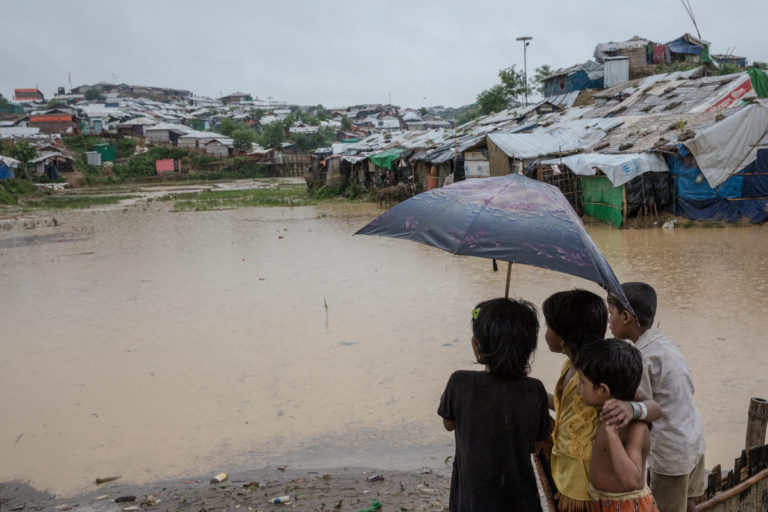A new research project, launched by the CHL’s Humanitarian Health team, will survey the readiness of the humanitarian health sector as climate change is set to dramatically transform the nature of health emergencies.
“The pace and scale of climate change has far-reaching health implications — from the spread of new and re-emerging infectious diseases, to escalating food insecurity, to the mental health impact on people who have lost their homes and livelihoods,” said Sonia Brockington, Lecturer in Humanitarian Health.
As the climate changes, health needs of populations are becoming more complex, systems are being stretched, and hard-fought gains in health system improvements are being eroded.
The first phase of this research is a 5-minute survey that asks about practitioners’ knowledge, attitudes and practice regarding climate change. Workers in humanitarian health, emergency health and the sector more broadly are invited to participate, and have the option of responding anonymously.
“The survey will allow us to analyse actions in humanitarian health care and leadership globally, to better understand how humanitarian health systems can be strengthened to meet climate change demands,” Ms Brockington said.
Confronting compounding health risks
Elizabeth Irvine, a Research Fellow with the Humanitarian Health Team, said climate change will likely increase the threat of disease outbreaks during humanitarian events.
On top of the usual disease burden that we see during humanitarian crises, we’re expecting to see in the future an increasing load of chronic disease and what we call ‘climate-related disease burdens’ on top of that.
She said the unusually severe flooding in Bangladesh earlier this year was an example of how climate change could impact and compound a humanitarian health response.
“This year’s monsoons have been catastrophic, causing severe flooding, landslides and storm damage – millions of Bangladeshi people have been affected, as have many of Bangladesh’s 900,000 Rohingya refugees,” she said.
“The rains have destroyed homes, livelihoods and critical infrastructure such as roads, bridges and health centres, making it even harder to deliver life-saving assistance. With flood waters receding, the risk of water-borne infectious diseases remains high – as is the risk of acute watery diarrhoea, which in humanitarian contexts can be life-threatening, especially for children.”

Cox’s Bazar, Bangladesh. Credit: Hanna Adcock / Save the Children
The survey is aimed at humanitarian practitioners, whose responses will help build the robust evidence base needed for the sector to embrace an effective, climate-informed practice.
Nick Ireland, the Head of Specialised Technical Services at Save the Children, underscored the need for this research:
“In times of humanitarian crises, children and communities are at their most vulnerable. At such times, good health is arguably the most essential building block for post disaster recovery. It is therefore critical that we understand the impacts that climate change will have on health in humanitarian context. This research is essential to help us all fill the information voids that currently exist in this area.”
Take the online survey now
The Humanitarian Health and Climate Change survey is currently available in English, with multilingual options (including French, Bengali and Bahasa) forthcoming. The five-minute survey is available online and can be filled in anonymously.
For further information
You can contact the humanitarian health team directly at health@cfhl.org.au. This project has Deakin University Ethics Approval (HEA-19-144).
For media comment contact:
Sonia Brockington
Lecturer in Humanitarian Health
The Centre for Humanitarian Leadership
P: 03 9246 8845
E: sonia@cfhl.org.au

